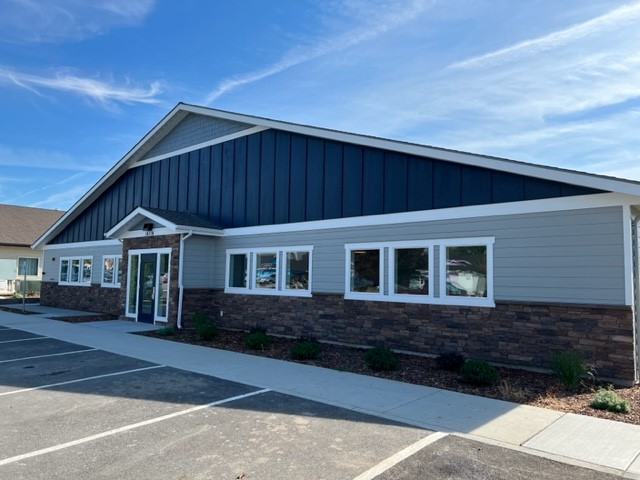By We Level Up WA | Author Kate Byrd, PharmD | Editorial Policy | Research Policy
Living with the weight of trauma that wasn’t even yours to begin with can feel overwhelming. At We Level Up Washington, we understand that some of your deepest struggles may have roots extending back generations.
Are you dealing with unexplained anxiety, relationship difficulties, or repeating family patterns you wanted to break? We understand, and we’re here to help you rewrite your story and create a healthier future, not just for you, but for generations to come.
What Is Generational Trauma?
Generational trauma, also called intergenerational or transgenerational trauma, refers to the psychological and emotional wounds that are passed down from one generation to the next. Unlike direct trauma that you personally experience, generational trauma is inherited through family systems, behaviors, and even biological mechanisms.
This form of trauma can originate from various sources:
- Historical events like war, genocide, or displacement
- Family dysfunction, including abuse or neglect
- Systemic oppression and discrimination
- Significant losses or hardships that affected your parents or grandparents
The challenging reality is that many people carry the emotional burdens of experiences they never personally lived through. A grandparent’s wartime experiences, a parent’s childhood abuse, or a community’s historical suffering can manifest as anxiety, depression, difficult relationships, or behavioral patterns that seem to come from nowhere.

Research shows that approximately 40% of children with parents who experienced significant trauma will develop similar psychological symptoms, even without direct exposure to the original traumatic events. This invisible inheritance shapes how we view ourselves, others, and the world around us.
How Generational Trauma Affects You and Your Family
The impacts of generational trauma can be subtle yet pervasive, influencing nearly every aspect of your life. Many clients come to us confused about why they struggle with certain emotions or behaviors despite having what they consider a “normal” upbringing. Here are some of the ways that generational trauma may affect your life:
Emotional and Psychological Effects
Generational trauma often manifests as:
- Persistent anxiety or hypervigilance, always waiting for something bad to happen
- Depression or emotional numbness
- Low self-esteem and negative self-perception
- Difficulty trusting others or feeling safe
- Unexplained guilt, shame, or feeling “different”
Behavioral Patterns
You might notice yourself:
- Responding to minor stresses with outsized reactions
- Developing unhealthy coping mechanisms like substance use or avoidance
- Struggling with emotional regulation
- Having difficulty setting healthy boundaries
- Repeating dysfunctional relationship patterns
Family Dynamics
Within families, generational trauma can create:
- Communication barriers or topics that are “off-limits”
- Rigid parenting styles focused on protection or control
- Attachment difficulties between parents and children
- Unspoken family rules about emotions or vulnerability
- Patterns of estrangement or enmeshment
The physical toll can be significant, too. According to research from the Centers for Disease Control and Prevention’s (CDC ) Adverse Childhood Experiences study, family trauma is associated with a greater likelihood of developing chronic health conditions like heart disease, autoimmune disorders, and chronic pain.
Causes of Generational Trauma
The ways trauma moves from one generation to the next have both psychological and biological causes, which are now being studied by researchers. Here are some examples of the causes of generational trauma:
Recent scientific discoveries have revealed that trauma can actually influence how genes are expressed without changing the genetic code itself. This field, called epigenetics, helps explain how trauma’s effects can be biologically inherited.
Studies of Holocaust survivors and their descendants have shown measurable differences in stress hormone regulation and gene expression related to trauma response—biological changes that were passed down to children born after the traumatic events.
Beyond biology, trauma is passed through:
- Learned behaviors and coping mechanisms
- Family narratives and communication patterns
- Parenting styles shaped by unresolved trauma
- Cultural practices developed in response to historical trauma
End the Emotional Pain. Get Your Life Back.
Feeling Depressed, Anxious or Struggling with Mental Health Illness? Get Safe Comfortable Mental Health Dual Diagnosis High-Quality Therapy From Counselors That Care. Begin Your Recovery Now.
Hotline: (509) 348-4077

Recognizing the Signs of Generational Trauma
Identifying generational trauma is challenging because it often feels like an intrinsic part of who you are. Many people don’t realize they’re carrying inherited trauma until certain patterns become impossible to ignore. Here are some signs of generational trauma:
Common Signs to Watch For
- Unexplained Emotional Responses: Feeling intense fear, anger, or sadness in situations that don’t warrant such reactions
- Relationship Patterns: Repeatedly finding yourself in similar dysfunctional relationships
- Parenting Triggers: Strong emotional reactions when parenting that seem disproportionate
- Identity Struggles: Feeling disconnected from your cultural heritage or family history
- Chronic Health Issues: Unexplained physical symptoms that medical treatment doesn’t fully resolve
Family Patterns That May Indicate Generational Trauma
- Family secrets or “don’t talk about it” rules
- Similar addictions or mental health issues across generations
- Repeated relationship dynamics (divorce, abandonment, abuse)
- Consistent parenting approaches that feel rigid or fear-based
Research shows that the majority of families with identified trauma histories showed at least 3 consistent behavioral patterns across generations, highlighting how these cycles perpetuate without intervention.
If these signs resonate with your experience, it doesn’t mean you’re broken or destined to repeat these patterns. Recognition is the first step toward healing.
Comfortable Facilities & Amenities
High-Quality Mental Health Services & Behaviroal Health Substance Abuse Treatment
Rehab Centers TourRenowned Mental Health Centers. Serene Private Facilities. Inpatient Rehab Programs Vary.
Mental Health Helpline: (509) 348-4077Proven recovery success experience, backed by a Team w/ History of:
15+
Years of Unified Experience
100s
5-Star Reviews Across Our Centers
10K
Recovery Success Stories Across Our Network
- Low Patient to Therapist Ratio
- Comprehensive Dual-Diagnosis Treatment
- Complimentary Family & Alumni Programs
- Coaching, Recovery & Development Events
- Comfortable Onsite Medical Detox Center
Treatment of Generational Trauma
Several treatments can be helpful for people with generational trauma. Here are some of the options available:
Trauma-Focused Therapies
- Eye Movement Desensitization and Reprocessing (EMDR): Helps process traumatic memories and reduce their emotional charge
- Trauma-Focused Cognitive Behavioral Therapy (TF-CBT): Addresses thought patterns and beliefs stemming from trauma
- Somatic Experiencing: Works with the body’s physical responses to trauma
- Internal Family Systems (IFS): Explores different “parts” of yourself that may carry trauma responses

Family Systems Approaches
- Genogram Work: Maps family patterns across generations to identify inherited trauma
- Family Therapy: Involves family members in the healing process when appropriate
- Attachment-Based Therapies: Rebuilds secure attachment patterns disrupted by trauma
Complementary Modalities
- Mindfulness and Meditation: Develops present-moment awareness and emotional regulation
- Expressive Arts Therapy: Uses creative expression to process trauma that may be difficult to verbalize
- Group Therapy: Provides community and reduces isolation with others who understand similar experiences
People with generational trauma experience greater symptom relief when their treatment combines individual trauma therapy and family systems therapy, rather than just individual therapy.
World-class, Accredited, 5-Star Reviewed, Effective Mental Health Dual Diagnosis Programs. Complete Integrated Inpatient Rehab with Free Post Discharge Therapy Planning.
Hotline: (509) 348-4077End the Emotional Pain Rollercoaster. Gain Stability & Happiness Through Recovery Treatment. Start Mental Health Counseling Today. Get Free No-obligation Guidance by Behaviroal Health Specialists Who Understand Mental Health Recovery.
Generational Trauma Statistics
Shared traumatic events can lead to serious psychological and physiological issues, including higher PTSD, depression, and violence.
61%
American Indian and Alaska Native adults reported exposure to at least one traumatic event during their lifetime.
Source: SAMHSA
46%
of children who have been exposed to intimate partner violence develop symptoms of PTSD.
Source: SAMHSA
2-3 times more
individuals who experienced childhood abuse are at risk of developing depression and anxiety disorders later in life.
Source: SAMHSA
Our Approach to Treating Generational Trauma at We Level Up Washington
At our Spokane behavioral health center, we believe healing generational trauma requires a comprehensive approach addressing both individual symptoms and family systems. Our trauma-informed care model recognizes that each person’s experience is unique, requiring personalized treatment plans rather than one-size-fits-all solutions.
Holistic Assessment and Treatment Planning
Your journey with us begins with a thorough assessment that explores:
- Your personal history and symptoms
- Your family background across multiple generations
- Current coping mechanisms and relationship patterns
- Co-occurring conditions like depression, anxiety, or substance use
Based on this assessment, we create an individualized treatment plan that integrates multiple therapeutic approaches tailored to your specific needs.
Trauma-Informed Care Framework
All our services are delivered through a trauma-informed lens that ensures we:
- Prioritize your safety and emotional security
- Recognize the widespread impact of trauma
- Avoid approaches that might retraumatize
- Empower you as an active participant in your healing
- Integrate cultural sensitivity and awareness
For clients with co-occurring substance use disorders, our dual diagnosis capabilities ensure that both trauma and addiction are addressed simultaneously, recognizing how these conditions often intertwine and reinforce each other.
Why Choose We Level Up Washington for Generational Trauma Care?
Located in the serene environment of Spokane, our behavioral health center offers a peaceful setting conducive to deep healing work. But what truly sets us apart is our specialized expertise in addressing the complex nature of generational trauma.
Specialized Expertise
Our clinical team includes professionals specifically trained in trauma recovery, family systems, and cultural competence. We stay current with the latest research and therapeutic approaches to provide you with the most effective care possible.
Community-Centered Approach
We recognize that healing from generational trauma isn’t just about individual recovery—it’s about creating healthier communities. Our approach emphasizes:
- Building support networks
- Reconnecting with cultural strengths and resources
- Developing skills to break cycles within families
- Contributing to broader societal healing

Get Help. Get Better. Get Your Life Back.
Searching for Accredited Dual Diagnosis Mental Health Centers Near You?
Even if therapy failed previously, or are in the middle of a difficult crisis, we stand ready to support you. Our trusted behavioral health specialists will not give up on you. When you feel ready or just want someone to speak to about counseling alternatives to change your life call us. Even if we cannot assist you, we will lead you to wherever you can get support. There is no obligation. Call our hotline today.
FREE 24/7 Dual Diagnosis Mental Health Services HotlineSteps to Begin Your Healing Journey
Taking the first step toward healing generational trauma can feel overwhelming, but you don’t have to navigate this path alone. Here’s how to get started:
- Reach Out: Call our confidential helpline at 509-348-4077 for a free, no-obligation consultation.
- Initial Assessment: Schedule a comprehensive evaluation with one of our trauma specialists to explore your unique history and needs.
- Personalized Treatment Plan: Together, we’ll develop a customized approach that addresses your specific challenges and goals.
- Begin Your Healing Work: Engage in therapeutic services designed to help you process trauma, develop new skills, and create healthier patterns.
- Ongoing Support: Access continuing care resources to sustain your progress and prevent relapse.
Remember that seeking help isn’t a sign of weakness; it’s an act of courage and strength. When you heal from generational trauma, you improve your own well-being and can positively alter the course of your family’s future.
Breaking the Cycle for Future Generations
When you heal your generational trauma, you’re doing more than improving your own life. You’re creating a ripple effect that transforms your family for generations to come.
Whether you’re already a parent or considering becoming one, healing generational trauma creates the possibility for more secure attachments, healthier communication, and greater emotional freedom for yourself and those you love.
Even if you don’t have children, this healing work contributes to broader community wellbeing. As trauma patterns are interrupted, we collectively move toward a more compassionate, connected society.
Ready to begin your journey toward breaking the cycle? Contact We Level Up Washington today at 509-348-4077. Our compassionate team is here to support you every step of the way.
Frequently Asked Questions
Where in Spokane, Washington, can I find generational trauma treatment?
We Level Up Washington’s Spokane facility offers specialized generational trauma treatment, trauma-informed therapists, and comprehensive programs to address the challenges of inherited trauma patterns.
Where in Seattle, Washington, can I find generational trauma treatment?
While our main facility is in Spokane, We Level Up Washington provides resources and referrals for Seattle residents seeking generational trauma treatment. We can help connect you with appropriate care options or discuss transportation options to our specialized Spokane center.
Where in Coeur d’Alene, Idaho, can I find generational trauma treatment?
Residents of Coeur d’Alene, Idaho can access generational trauma treatment at We Level Up Washington’s nearby Spokane facility, just a short drive away. Our center welcomes clients from across the Idaho-Washington border, providing specialized trauma care regardless of state residency.
Experience Transformative Recovery at the We Level Up Treatment Center.
See our authentic success stories. Get inspired.
Get the help you deserve.



Start a New Life
Begin with a free call to a behavioral health treatment advisor. Learn more about our dual-diagnosis programs. The We Level Up treatment center network delivers recovery programs that vary by each treatment facility. Call to learn more.
- Personalized Care
- Caring Accountable Staff
- World-class Amenities
- Licensed & Accredited
- Renowned w/ 5-Star Reviews





